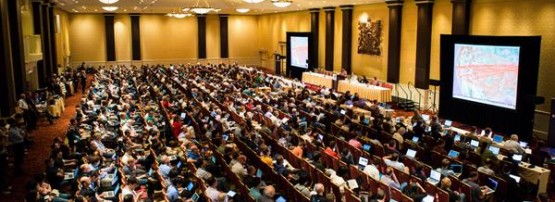
APNIC attended the Internet Engineering Task Force (IETF) 90, held from 20 to 25 July 2014 in Toronto, Canada.
The IETF is an open Internet standards body that functions under the guidance of the Internet Society. It develops and promotes voluntary standards related to all aspects of the Internet protocol suite.
APNIC staff activities included:
- Geoff Huston presented on Domain Name System Security (DNSSEC) extensions, examining the metrics of delay for the client and the load on the authoritative name servers when a served zone is signed using DNSSEC. Geoff noted that further work is required on the DNSSEC drop out rate, which is the proportion of users that fail to resolve a DNS name because it is DNSSEC signed, irrespective of whether the name is validly signed or not.
- George Michaelson presented on the drop in Teredo in the Labs IPv6 experiments at the end of 2013 and early in 2014. The Teredo servers, operated by Microsoft, will continue to perform the Teredo TURN functions, but will not be a server or relay to forward general unicast IPv6 packets.
- Before IETF 90 began, Geoff and George attended an IPv6 measurement workshop, organized by the Internet Society and attended by a number of service providers, including Comcast, Akamai, and Google. APNIC Labs recently announced a new approach to some of their measurements relating to IPv6, DNSSEC and BGP. The intention of these sets of data collection is to compare individual measurements at a level of geographic regions, individual countries, and individual networks.
- APNIC staff also met with RIPE NCC staff to discuss ongoing collaborative work on Resource Public Key Infrastructure (RPKI), and compared notes with CNNIC and other implementers on error conditions and improvements in the Web Extensible Internet Registry Data Service (WEIRDS), part of the Registration Data Access Protocol (RDAP) suite of specifications to improve the existing Whois service.
To find out more about what the Labs team is doing, visit the website. You can keep up-to-date with Geoff’s and George’s research by reading their blog, Blabs.
The views expressed by the authors of this blog are their own and do not necessarily reflect the views of APNIC. Please note a Code of Conduct applies to this blog.
